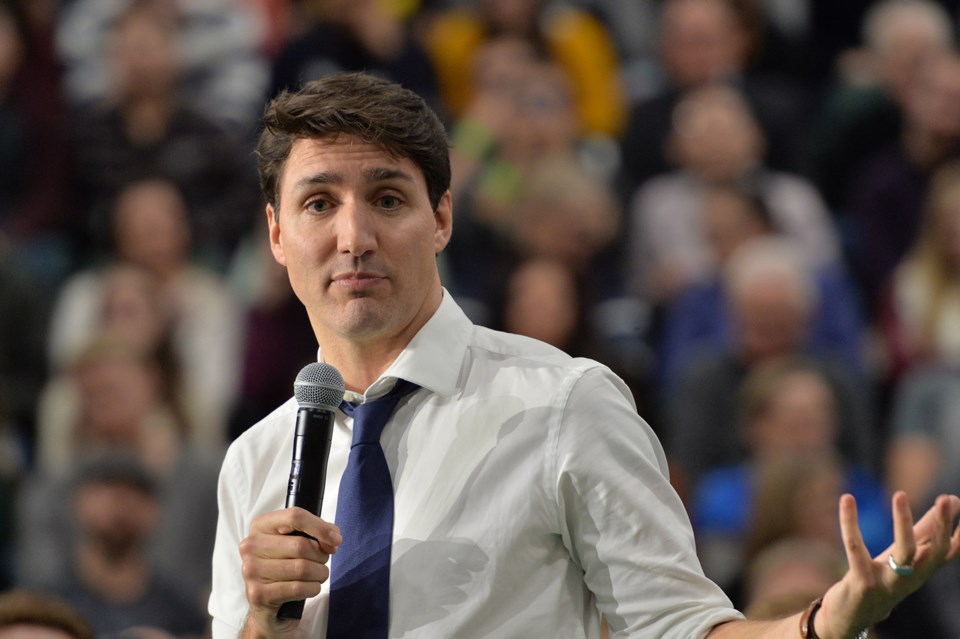While we depend on our leaders to deliver us difficult news, we also depend on them to keep important secrets from us at the right time. We may not always like it, but it is for our own good.
How to explain, then, why Prime Minister Justin Trudeau stunned the world last week with an accusation that agents of the government of India were responsible for the audacious June killing of a Sikh leader in Surrey?
Trudeau’s statement in the House of Commons left so much to be desired: “Over the past number of weeks, Canadian security agencies have been actively pursuing credible allegations of a potential link between agents of the government of India and the killing of a Canadian citizen, Hardeep Singh Nijjar,” who was sympathetic to the separatist movement for an independent Sikh nation but who repeatedly denied his allegiance to separatist violence.
Let’s unpack this: for weeks, security agencies have been “pursing credible allegations of a potential link.” Nothing more tangible than this? No specific suspects Canada knows of and now is seeking? No explanation of their connection as agents? No reason to expel an Indian diplomat from Ottawa? No reason given why we heard this statement this week, as opposed to last week or the week before or the week before that?
It is worth asking: is that fractional statement the stuff of leadership, given that it set off angry denouncements by a country we seek as an alternative to China as a major market for our products? Given that it created a dilemma for fellow Five Eyes members America and Britain as they try not to offend either important ally? Given that it prompted the warning by India that its citizens might not be safe to travel here? Given that it generated the ritual tit-for-tat expelling of diplomats? Given that it will trigger rallies in our city streets?
On the surface: Utterly, absolutely, no. It was at once too little and too much information. It was a violation of a covenant in which leaders share but do not air their dirty laundry. Why, instead, did our prime minister not see fit to simply notify Indian Prime Minister Narendra Modi when they met at the G20 gathering this month of the intelligence Canada had received and was pursuing, then leave it at that? Why did he have to go one serious step further and, without the facts we would wish if the shoe were on the other foot, paint the Indian government as the murderers of a Canadian for the world to see?
Upon this we can all agree: if the allegation is true, it is an astonishing act deserving of the world’s wrath. Governments cannot take their grievances abroad to murder other’s citizens. And a national leader has every right to denounce and penalize any country that chooses vengeance over the tried-and-true process of bringing an adversary to face justice.
Canada will pay a profound price if it cannot support its suspicions with substance. Even now it stands, until this statement is either fulfilled or forgotten, to freeze Canada’s rickety venture to make the world’s largest democracy and nation a more formidable friend. Unless there is something stronger than “credible allegations,” and unless they can emerge quickly, Canada has found itself on a tree limb in gale-force winds.
It has placed America, our most important ally, in a delicate place at the wrong time as it courts India and even Saudi Arabia as offsets for Russia and China. Little wonder it did not match Canada’s call for the Indian government to denounce Nijjar’s murder.
One wonders: why didn’t Canada clearly gain U.S. and U.K. support for that call before Trudeau stood in the Commons? (Then again, I suppose, why hasn’t either country questioned what Trudeau said?)
With a possible two years still from an election, Trudeau’s government is waning and public opinion is worsening, so we can only hope that this wasn’t some sort of politically inclined gambit of anxiety to appear statesmanlike momentarily. It is, regardless, an unusually and unnecessary risky path.
Much as we would like, Trudeau’s statement won’t find the killers sooner nor encourage peaceable coexistence in Canada of a disparate diaspora. It is the drama teacher in him resurfacing and feels like ego over evidence.
Kirk LaPointe is publisher and executive editor of Business in Vancouver and vice-president, editorial, of Glacier Media.



